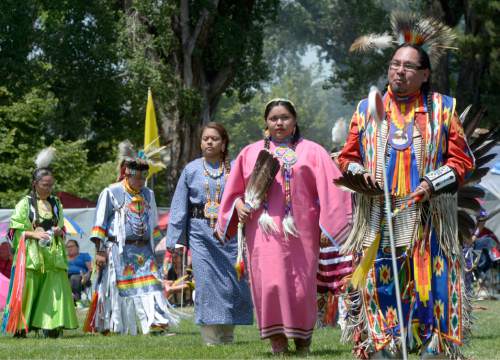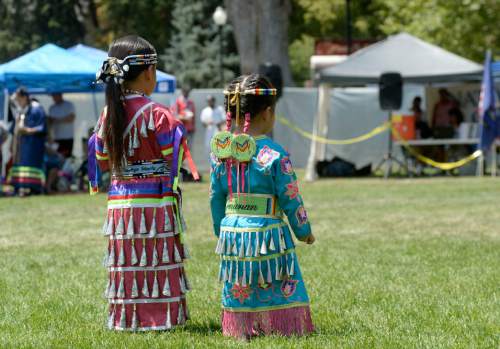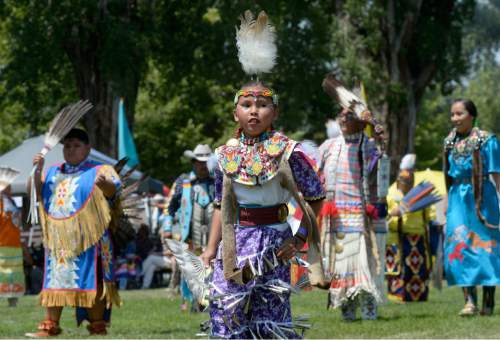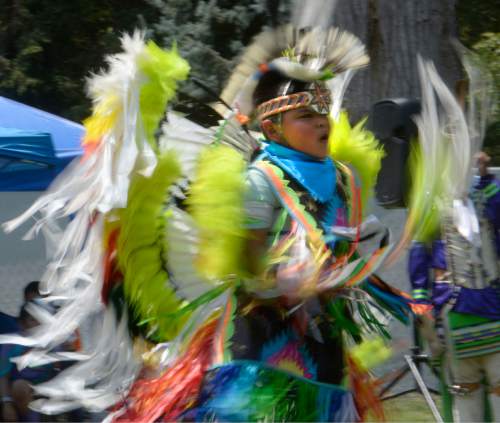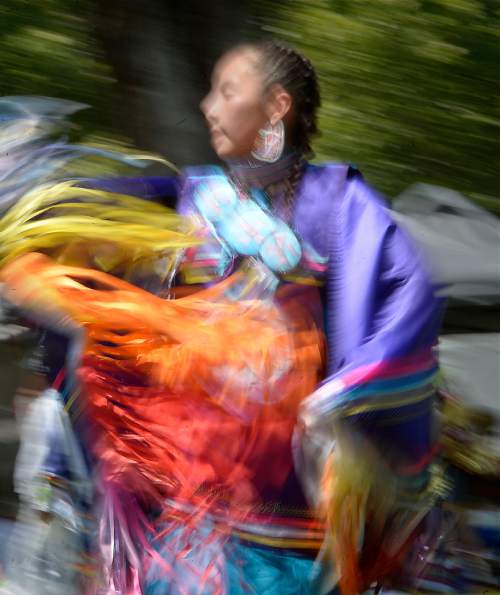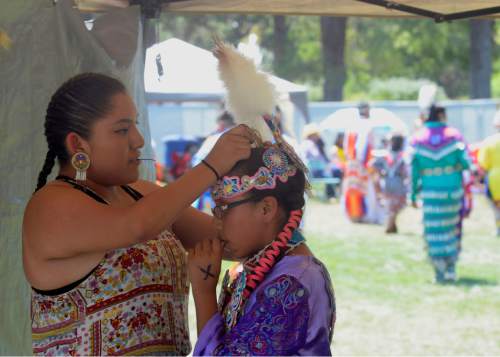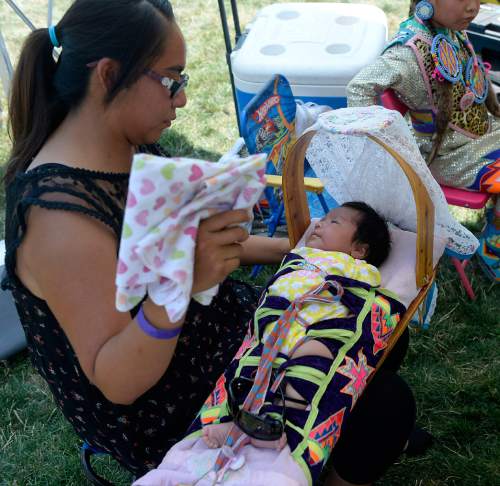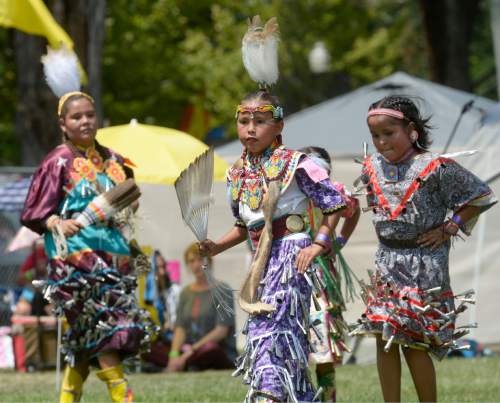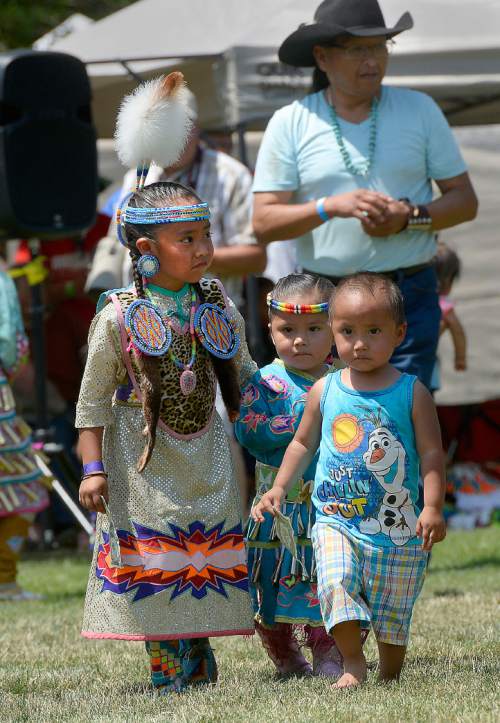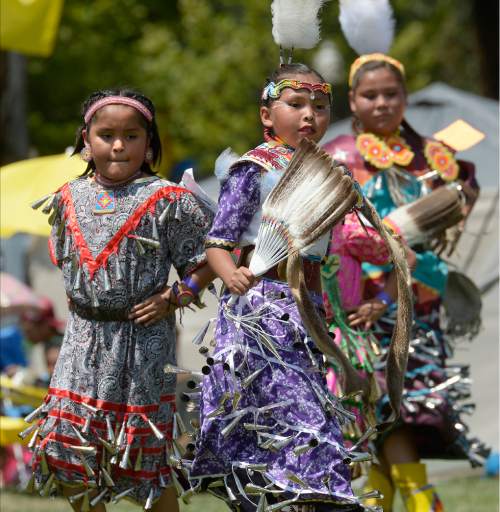This is an archived article that was published on sltrib.com in 2016, and information in the article may be outdated. It is provided only for personal research purposes and may not be reprinted.
In the 1990's, Tilda Willie was searching for a way to help her three children understand and appreciate their Navajo heritage.
So the Cedar City social worker had her youngsters participate in her culture's traditional hoop and jingle dances at a Salt Lake City powwow on Pioneer Day.
Now, Willie's two daughters and son all are in their twenties. And they still are honoring their lineage in the Salt and Bitter Water clans at the yearly Native American Celebration in the Park Powwow in Liberty Park.
"It makes me proud as a mother," Willie said. "It instills their identity, along with the importance of their connections."
The trio did not make the start of the Monday ceremony, Willie said, because they were performing as part of a cultural program at This is The Place Heritage Park.
Now in its 22nd year, the Liberty Park gathering drew over 200 people Monday afternoon. Among the guests was Salt Lake City Mayor Jackie Biskupski, who expressed her "respect and gratitude" for Utah's Native American community before recording parts of the ceremony on her phone and stopping to chat with performers.
Biskupski acknowledged in a speech that policymakers in Utah have not done enough to include native voices in their discussions.
"We have a lot of learning to do. A lot of growing to do that will bring us together," Biskupski told performers and spectators at the start of the ceremony.
Monday's 100-degree weather did not prevent dozens of members of the Ute, Navajo and other Native American tribes from dancing in suede, eagle feathers and beaded chokers. Performers included toddlers and grandparents from as far as New Mexico and Washington state. Some played drums and offered Navajo prayers, while others danced, jostling on one foot, then the other.
"We can dance our hearts out, just for fun — just to show respect for life," said a dancer named Jimmy Reese, originally from Shonto, in Arizona's Navajo County.
After attending the Days of '47 Parade in the morning, Oldouz Stokes brought her 5-year-old son, Aristotle, to the powwow to show the boy a different aspect of Utah's history.
"It'd be good for him to experience some of the culture that was here when the pioneers came," Stokes said. Aristotle sipped on juice as he watched dancers with bells around their ankles make their way around the circle.
Others fanned themselves with paper or munched on fry bread as they watched the celebration that would continue into the evening.
In Utah, there are roughly 60,000 American Indians or Alaska natives, according to U.S. Census Bureau estimates from 2014, the most recent available.
"This is the day that if you're Native American, you should be standing proud," said festival co-founder Cal Nez.
Some in his own community have criticized the gathering, Nez said, telling him that holding it in on Pioneer Day effectively celebrates the violence and oppression native groups have endured at the hands of white people, instead of condemning them.
But Nez maintains it is important to commemorate native people on the state holiday honoring Utah's history. He believes the event benefits Salt Lake City, broadening its culture.
With that in mind, Nez took the microphone Monday at the ceremony, urging Biskupski to work with officials in her city, as well as Salt Lake County and the state to help sponsor the event that costs roughly $10,000 to $15,000 to put on, depending on the year.
"We call upon you," Nez told Biskupski, "to be a friend and an advocate," so that his organization can stop charging the current $10 entry fee used to pay dancers and drummers, as well as other event costs.
"I stand beside you, I've heard your words," Biskupski responded. I'll do my best to see we've changed the dynamics of this festival."
Twitter: @anniebknox


